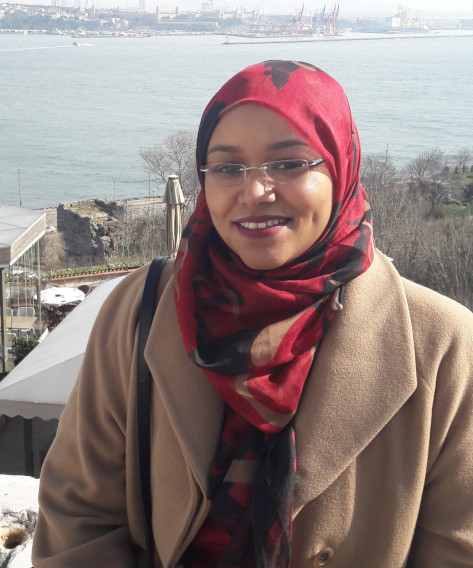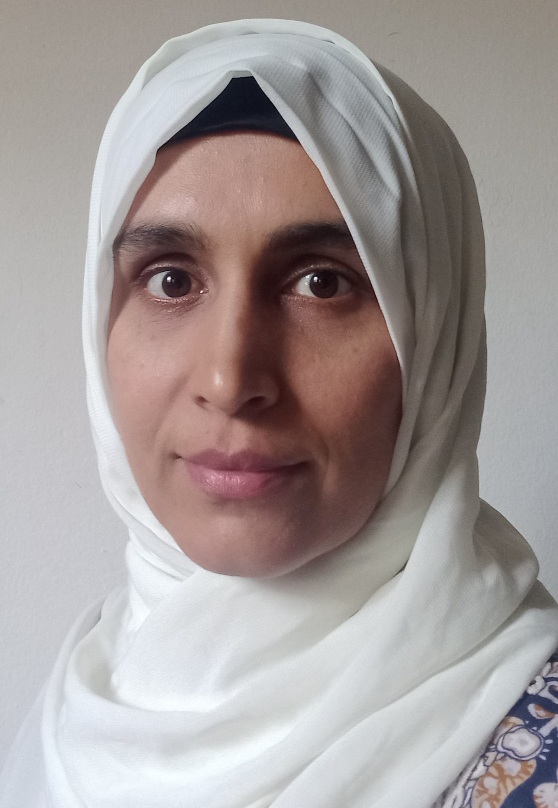Women participation in data-related posts is very low. Statistics show that less than 25% of data science professionals are women. However, it is a field with high demand. In research in particular, the ever-growing capacities for data generation with techniques such as multi-omics, the digital access to medical records or imaging data put at the forefront the need to train more professionals in data science, machine learning and artificial intelligence.
The Computational Biology Facility, part of LIV-SRF, specialises in the software development and analysis of complex biological datasets. One of the CBF’s aims is to train the health and life sciences community in these important and relevant areas. The CBF Director comments “I am passionate about enabling all scientists to work on functional multidisciplinary teams. For this we need to broaden the horizons of our clinical and molecular biology students and staff and develop them in aspects of statistics, programming and overall data science”. Following this philosophy, the team has developed an ever-growing suite of courses that bring the skillset of applicants from zero to able to apply machine learning methods competently to a wide range of research questions. These courses can be accessed publicly and members of UoL can also access bursaries to cover their fees.
While in the past the CBF has engaged with IWD celebration by organising events like "Women in data science" and coding events for "Ada Lovelace Day". In 2022, the CBF launched the first “IWD data science scholarship”. An annual award to try to bridge the gap for women in the field. This is an opportunity for all women but particularly for those coming back from a career break that want to train or re-train in aspects of data analytics in life sciences or clinical research. In this field keeping up to date with developments is crucial and the selected women will be awarded access to all CBF professional courses for a period of 5 years. They will also be enrolled in a peer-peer support community to nurture their skillset and expertise as well as provide effective networking opportunities. Dr Saneeya Qureshi, Head of Researcher Development and Culture, commented about how this opportunity resonates with the University’s commitment to both EDI and the Researcher Development Concordat in highly on-demand areas. As a reminder to the community, all researchers have access to 10 working days to access development opportunities.
The 2024 iteration of the scholarship has closed and we're delighted to announce that Lamia Yahia Mohamed Elkhier has been awarded the 2024 IWD scholarship. The next iteration will be launched early 2025.
Notes for applicants
This scholarship is only available to those who identify as women. Applications will be anonymised and passed to a panel of at least three University staff. All applicants will be scored and the highest ranked applicant will be the winner. Points will be decided based on answers to the application form and are awarded on the following criteria:
- Applicant has had a career break (+1, +2 for a longer break)
- Applicant wants to re-train in this discipline having a different background (+1)
- Applicant is a carer or parent (+1)
- Applicant is from a global majority background (BAME) (+1)
- Applicant is from LGBTQ+ collective (+1)
- Applicant has a disability (+1)
- Applicant is a first-generation professional (+1)
- Applicant career aspirations will benefit from this course (direct wish to retrain in data related areas) (Up to +2)
- Applicant motivation and plans / impact of the scholarship (up to +5)
Awardees
2024: Lamis Yahia Mohamed Elkheir
 |
"As a woman in science from Sudan, a conflict-affected region, my role as an academic at the University of Khartoum and a researcher at the Mycetoma Research Center has fuelled my dedication to not only educate future health professionals but also to champion open science through the African Reproducibility Network. Receiving this scholarship amplifies my commitment to tackling Neglected Tropical Diseases and underscores the critical need for innovative healthcare solutions in underserved regions. This honour not only recognises my efforts but also enhances my capacity to make a meaningful difference in global health, inspiring hope and driving forward the mission to protect the most vulnerable." |
2023: Dr Shakila Bibi
 |
My name is Shakila Bibi and I am looking to reskill and train to be a Data Scientist specializing in Computation Biology. Earlier in my career, I worked in biotechnology, designing biosensors for measuring neurotransmitters such as glutamate and acetylcholine in in vitro brain studies. During my PhD, I made biosensors for D-serine and investigated the role of this co-agonist in NMDA receptor activity in learning and memory. Soon after, I joined Sarissa Biomedical, a biotech specializing in biosensors and collaborated with Warwick Medical School to continue working on the role of D-serine in the brain. I took a career break to raise a family but felt the need to reskill and train in order to rejoin the workforce. I have completed a digital skills program in Data science via Coventry University, learning Data analysis using SQL and Python. The IWD scholarship granted to me at this opportune time will give me the opportunity to learn R and specialist quantitative methods that will enable and ease my journey into Computational Biology |
2022: Dr Helen Page a research associate at the department of primary care and mental health.
 |
My name is Helen Page and I am a research associate in the department of Primary Care and Mental Health, in the final year of my current research contract. Earlier in my career I was research fellow for a multi-site 6 year epidemiological study of outcomes in depression, during which time I completed my PhD. During this time I worked on large data sets using SPSS and Stata 5 to predict and model outcomes using multiple regression, path analysis and structural equation modelling. I went on to teach research methods and statistics to undergraduate and postgraduate Psychology students at the University of Chester, where I was Senior Lecturer for 5 years. Following the birth of my third child, I took a career break to look after my children and when I returned to academic work, I had lost confidence in my abilities. Whilst I have retained my ability to coordinate the day-to-day aspects of recruitment and data collection, I feel that I have lost fluency with advanced statistical methods. I have noted from recent job descriptions that quantitative research posts now ask people for competency in using R and I feel the courses provided by CBF are the perfect opportunity for me to update my skills. Being able to access the courses during a flexible timeframe (and tuition free) is a great opportunity for career development and I am very excited to get going and grateful for the scholarship, which allows me to do this. |
Back to: Computational Biology Facility